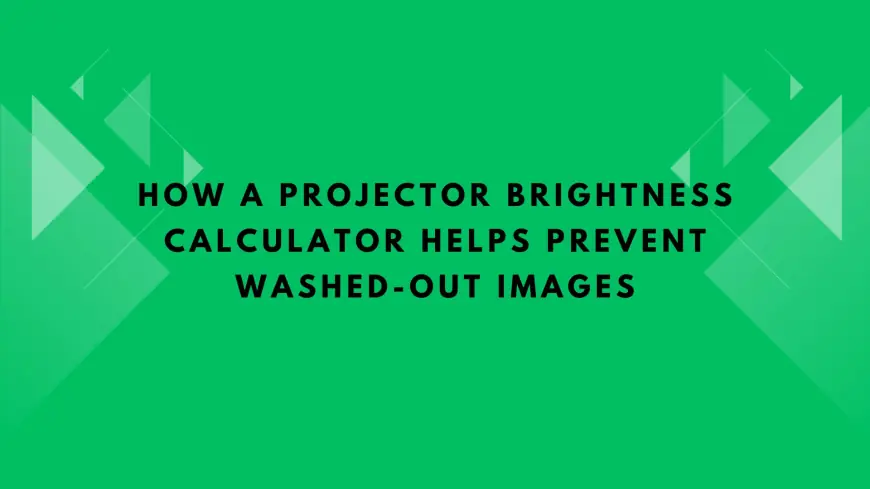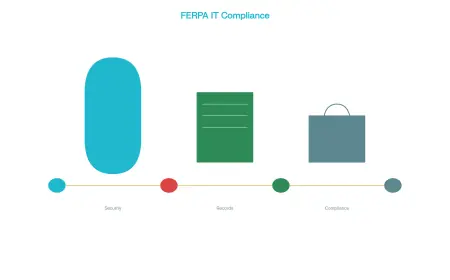How a Projector Brightness Calculator Helps Prevent Washed-Out Images
In this blog, we will explore how using a projector brightness calculator can help you avoid washed-out images and make smarter buying decisions.

There’s nothing more disappointing than sitting down to watch a movie or give a business presentation, only to find your screen washed out, dull, and difficult to see. You spent time choosing a projector, setting it up, and aligning it perfectly—yet the image still lacks clarity and contrast. The culprit is often poor brightness planning.
Whether you are outfitting a home theater, a classroom, or a corporate boardroom, brightness is one of the most critical factors in achieving a vivid, high-quality image. That is where a projector brightness calculator comes in. This tool helps determine the ideal number of lumens your projector needs based on room size, ambient light, screen size, and other variables. In this blog, we will explore how using a projector brightness calculator can help you avoid washed-out images and make smarter buying decisions.
Why Brightness Matters for Projectors
Projector brightness is measured in lumens. The higher the lumen count, the brighter the image. But brightness needs vary depending on your environment. A projector that looks brilliant in a dark home theater may appear completely washed out in a sunlit classroom.
Getting the right brightness is not just about picking the highest lumen count you can afford. If the projector is too dim, images will look faded. If it is too bright, especially in a dark room, it can strain the eyes and distort color. Striking the right balance is essential—and a projector brightness calculator helps you find that sweet spot.
Common Causes of Washed-Out Images
A washed-out image appears dull, pale, and low in contrast. This can happen for several reasons:
-
Too much ambient light: Light from windows, lamps, or overhead fixtures can overpower the projector image.
-
Insufficient lumens: The projector is not bright enough to compete with ambient light.
-
Incorrect screen size: A larger screen requires more lumens to maintain clarity.
-
Poor screen material: Low-gain screens do not reflect light well, reducing perceived brightness.
-
Improper projector placement: Distance from the screen affects image intensity and size.
Understanding all these factors before choosing your projector is key to avoiding poor image quality.
What Is a Projector Brightness Calculator?
A projector brightness calculator is a digital tool that calculates how many lumens your projector should have based on input variables. These typically include:
-
Room size (square footage)
-
Ambient lighting level (dark, moderate, bright)
-
Screen size (diagonal inches or width and height)
-
Screen gain (reflectivity)
-
Projector distance from the screen
Some calculators are simple and focus on a few basic fields, while more advanced ones also consider ceiling height, projector type, and viewing purpose (movies, presentations, etc.).
By entering this information, the calculator recommends a brightness level (in lumens) that will deliver optimal image quality without the risk of it appearing washed out.
How the Calculator Prevents Washed-Out Images
Here’s how using a projector brightness calculator makes a difference:
1. Tailors Brightness to Room Conditions
Not all rooms are the same. A home theater with blackout curtains has vastly different needs than a conference room with floor-to-ceiling windows. A calculator accounts for ambient light, helping you choose a projector that can cut through glare and maintain sharp visuals.
2. Matches Brightness to Screen Size
Larger screens need more lumens because light has to spread across a wider surface. A calculator factors in your screen dimensions to suggest the right brightness level. This prevents underpowered projectors from producing dull or uneven images.
3. Considers Viewing Distance and Audience Size
The farther the projector is from the screen, the dimmer the image becomes. Additionally, if the room is large and people are sitting far away, you need a projector that can still project a vivid image across the room. The calculator accounts for these logistics.
4. Improves Energy Efficiency
Too much brightness is not only unnecessary but also wasteful. By calculating the exact lumen requirement, you avoid overspending on a high-lumen projector that consumes more power than you need.
5. Guides Better Purchase Decisions
If you are overwhelmed by choices in the projector market, a calculator gives you a specific target. This narrows your search to models that fit your room's needs, saving time and money.
Example: Home Theater vs. Classroom
Let’s take two different scenarios to see how a projector brightness calculator works:
Home Theater Setup
-
Room: 12x15 feet, completely dark
-
Screen: 100 inches, high-gain screen (1.2 gain)
-
Use: Movies and gaming
Calculator recommendation: 1,200 to 1,800 lumens. Because the room is dark and the screen is reflective, you do not need a super-bright projector.
Classroom Setup
-
Room: 20x30 feet, ambient light from windows
-
Screen: 120 inches, standard whiteboard surface (0.8 gain)
-
Use: Slides, videos, and diagrams
Calculator recommendation: 3,500 to 5,000 lumens. You need higher brightness to overcome daylight and a less reflective surface.
In both cases, the calculator helps you avoid going too dim or too bright—resulting in better clarity and comfort for viewers.
Additional Tips to Avoid Washed-Out Images
Even with the right projector, poor setup can still lead to dull images. Here are a few bonus tips:
-
Use blackout curtains or blinds to reduce ambient light
-
Paint the room in darker colors to reduce reflections
-
Choose a high-quality projection screen instead of a blank wall
-
Position the projector to minimize distance while maintaining focus
-
Regularly clean the lens and filters to maintain performance
Conclusion
A great viewing experience starts with proper planning. Whether you are designing a home theater, training room, or business boardroom, brightness is one of the most critical elements to get right. A projector brightness calculator removes the guesswork by giving you a science-backed recommendation tailored to your space.
By using this tool, you ensure that your images are vibrant, clear, and impactful—never washed out. It also helps you save time, money, and energy by guiding you to the perfect projector for your needs. Before you invest in a new projector or plan your next presentation, take a moment to calculate the brightness. Your screen—and your audience—will thank you.
What's Your Reaction?
 Like
0
Like
0
 Dislike
0
Dislike
0
 Love
0
Love
0
 Funny
0
Funny
0
 Angry
0
Angry
0
 Sad
0
Sad
0
 Wow
0
Wow
0



















































